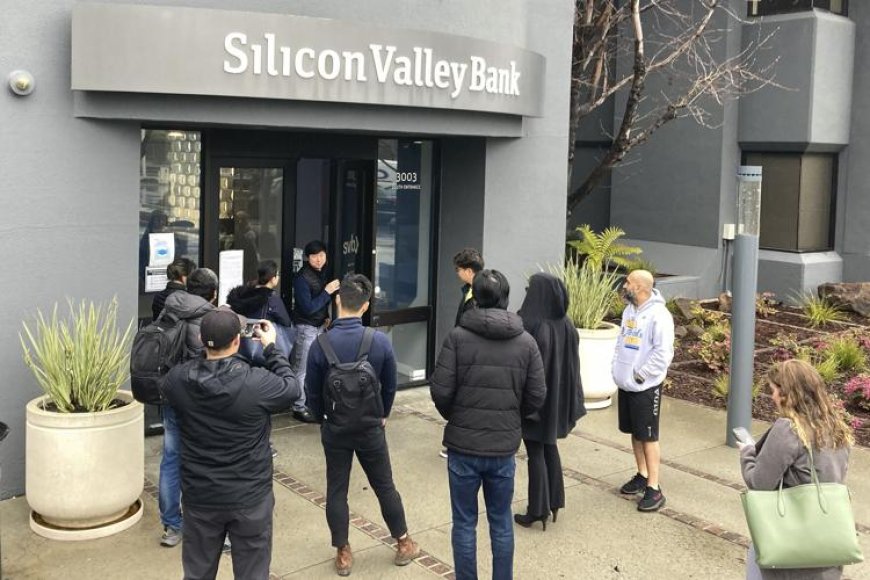Federal Reserve report on SVB collapse highlights mismanagement and supervisory failures
Central bank regulators also faulted for not understanding depth of SVB’s problems

A report released by the Federal Reserve on Friday blamed mismanagement and supervisory failures, as well as a social media frenzy, for the collapse of Silicon Valley Bank in early March. The bank’s dramatic failure was the result of a combination of factors, including bank executives who made “textbook” failures in managing interest rate risk, Fed regulators who failed to understand the depth of SVB’s problems and were slow to react, and social media activity that may have accelerated the institution’s downfall. The Fed’s vice chair for supervision, Michael S. Barr, called for changes in how regulators approach the nation’s complex and interwoven financial system.
BREAKING: After @JoeBiden has long bailed out the bank, Federal Reserve releases damning report on Silicon Valley Bank collapse, blaming its own supervision and regulation for failing to address risks that led to the largest bank failure since the 2008 crisis. Vice Chair for… pic.twitter.com/ZCzm5nDYFF — Simon Ateba (@simonateba) April 28, 2023
SVB’s mismanagement and supervisory failures:
The collapse of Silicon Valley Bank was due to mismanagement and supervisory failures, according to a report by the Federal Reserve. The bank was the nation’s 17th-largest and its failure triggered a run on deposits triggered by liquidity concerns.
Social media frenzy compounded problems:
In addition to mismanagement and supervisory failures, a social media frenzy may have contributed to the bank’s collapse. Fear spread on social media outlets that the bank was in trouble, combined with the ease of withdrawing deposits in the digital age, may have fundamentally changed the speed of bank runs, according to the report.
Regulators criticized for not understanding SVB’s problems:
The report also faults the Fed regulators for not understanding the depth of SVB’s problems and being too slow to react. The report calls for changes in how regulators approach the nation’s complex and interwoven financial system.
Fed calls for changes in regulatory framework:
The Fed’s vice chair for supervision, Michael S. Barr, called for broad changes in the way regulators approach the nation’s complex and interwoven financial system. He emphasized the need to continuously evaluate the supervisory and regulatory framework and be humble about the ability to assess and identify new and emerging risks.
Future changes to banking regulations
Central bank officials are likely to focus on cultural changes in the wake of the SVB collapse. Possible changes could include standardized liquidity requirements for a broader range of banks, and tighter supervision of compensation for bank managers. Senior Fed officials also noted that increased capital and liquidity might have helped SVB survive.
Regulatory changes will take years to take effect
Barr noted that supervisory and regulatory changes are likely to take years to take effect. Areas the Fed is likely to focus on include the types of uninsured deposits that raised concerns during the SVB drama, as well as a general focus on capital requirements and the risk of unrealized losses that the bank had on its balance sheet.
Fed chair welcomes report’s criticism
Fed Chairman Jerome Powell welcomed the Barr probe and its internal criticism of Fed actions during the crisis. Powell said he agreed with and supported the recommendations to address the rules and supervisory practices, and was confident they would lead to a stronger and more resilient banking system.
Reversing deregulatory measures
The SVB collapse has led to calls for reversing some of the deregulatory measures taken in recent years. Senior Fed officials said changes to the Dodd-Frank reforms helped spur the crisis, though they also acknowledged that the SVB case was a failure of supervision. A change approved in 2018 reduced the stringency of stress testing for banks with less than $250 billion, a category in which SVB fell.
Future risks to the financial system
The report emphasizes the need to continuously evaluate the supervisory and regulatory framework and be humble about the ability to assess and identify new and emerging risks. The report notes that

































































